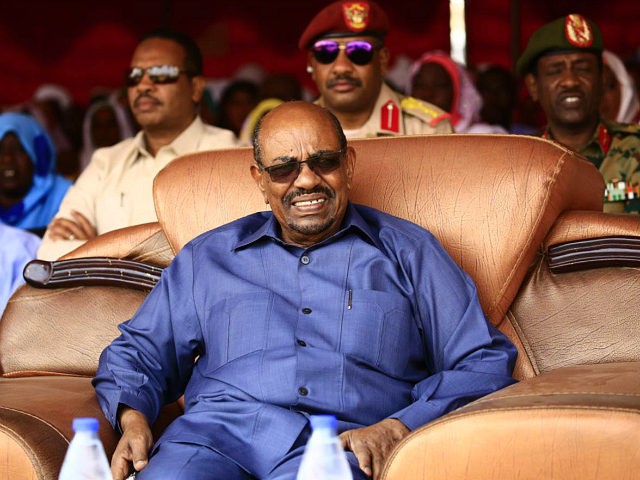The State Department announced the anticipated easing of most sanctions against the war-torn African regional power Sudan Friday, claiming the increasing compliance of perennial pariah Omar al-Bashir’s regime in international affairs, effective October 12.
In a press release, State Department Spokeswoman Heather Nauert said the decision to loosen sanctions in Sudan was made:
[I]n recognition of the Government of Sudan’s sustained positive actions to maintain a cessation of hostilities in conflict areas in Sudan, improve humanitarian access throughout Sudan, and maintain cooperation with the United States on addressing regional conflicts and the threat of terrorism.
Nauert further explained, “This action came about through a focused, 16-month diplomatic effort to make progress with Sudan in these key areas.”
A senior administration official laid out the basis of the “five-points” demanded of the African nation’s government in those negotiations as follows:
[F]irst, to maintain a cessation of hostilities in the areas of its internal conflict, including Darfur and what we refer to as the two areas, the states of South Kordofan and Blue Nile; second, to improve humanitarian access across Sudan; third, to end destabilizing activity in South Sudan; fourth, to build and deepen U.S.-Sudan cooperation in countering terrorism; and fifth, improving regional security with a particular focus on countering Joseph Kony and the Lord’s Resistance Army.
In addition to cooperation with American humanitarian partners and the other points noted above, the United States reportedly secured concessions on the Sudanese relationship with North Korea. Contrary to earlier reports, this did not concern Sudan breaking off diplomatic relations with the Asian nuclear rogue state. Sudan has no formal relations with North Korea, and, as a senior administration official noted, the two states do not maintain embassies in each other’s capitals.
Instead, the concessions consisted of the African nation agreeing to fully implement existing U.N. Security Council resolutions regarding North Korea. This would, most significantly, prevent any further arms sales from North Korea to Sudan. The African nation had been one of the few large countries willing to purchase weapons from North Korea’s sprawling domestic arms industry, a key source of hard currency for the Kim regime. In 2013, for example, Sudan reportedly purchased more than six million dollars worth of North Korean man-portable surface-to-air missiles in a deal that flouted U.N. arms sanctions against both countries.
Sudan has been under significant American economic and military sanctions since the Clinton administration issued Executive Order 13067 in 1997 in response to human rights violations stemming from the South Sudan conflict. That bloody war resulted in the eventual independence of South Sudan in 2011 but still simmers as a low-intensity conflict. President George W. Bush added yet more sanctions in 2006 in response to Sudanese government militias’ actions in the Darfur region, where the international community roundly condemned widespread crimes against humanity.
According to administration officials, the deal announced Friday will entirely revoke the Bush-era sanctions and all but the framework provisions of those implemented under President Clinton.
The Sudanese government has also been on Department’s list of state sponsors of terrorism since 1993, when the country briefly provided safe harbor for Osama Bin Laden and his then-nascent al-Qaeda. Senior State Department officials emphasized that that status was not affected by Friday’s announcement and more progress would be needed if Sudan were to leave that unsavory company.
The State Department website still cites the recent presence of al-Qaeda groups and Hamas in the country and notes, “Sudan has yet to take concrete steps to resolve the crisis in the Two Areas of Southern Kordofan and Blue Nile, to include ending aerial bombardments, allowing sufficient and sustained humanitarian access, and resuming political dialogue to resolve the conflicts.”

COMMENTS
Please let us know if you're having issues with commenting.